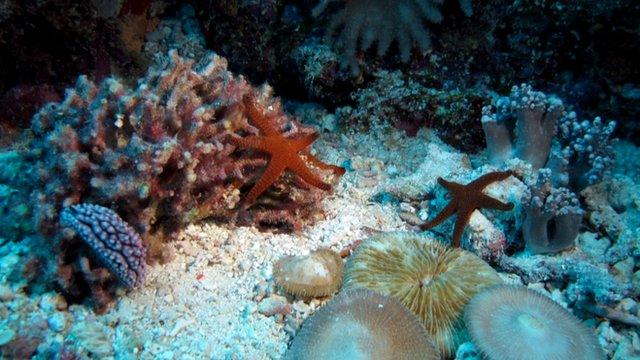Unesco to rule on Tasmania forest and Great Barrier Reef
- Published
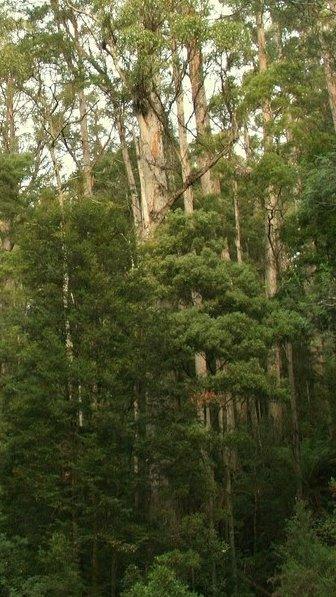
Australia wants to become the first developed nation to reverse a forest's protected status on economic grounds
An Australian plan to chop down 74,000 hectares of protected Tasmanian forest for timber will be discussed at a UN cultural organisation meeting which begins on Sunday in Qatar.
The Tasmanian forest is part of a Unesco World Heritage Site, but the Australian government wants this status revoked so logging can begin.
Thousands of people in Tasmania protested against the move on Saturday.
The government says the area is degraded as it has been logged before.
If the bid succeeds, Australia would become the first developed nation to have reversed the protected status of a forest on economic grounds.
Australian Prime Minister Tony Abbott has championed the cause of the timber industry, which employs more than 66,000 people.
The opposition Greens party has labelled him a "dig it up, cut it down prime minister".
Wilderness Society spokesman Vica Bayley said: "Logging World Heritage forests is as reckless as destroying any other World Heritage site, like using the Grand Canyon as a garbage dump, knocking down the Sydney Opera House for harbourside apartments or selling the Eiffel Tower for scrap."
Another protected Australian site, the Great Barrier Reef, is also on the agenda of Unesco's World Heritage Committee meeting in Doha.
Canberra hopes to deter Unesco from downgrading the reef to "endangered status" because of pollution-linked deterioration.
Australian officials say that industrial chemical pollution levels at the reef have fallen significantly because of better agricultural and industrial practices.
However, critics say approval for a project to dump dredged sediment in the Great Barrier Reef Marine Park as part of a project to create one of the world's biggest coal ports presents a serious threat to the reef. Scientists have warned that the sediment could smother or poison coral.
Unesco is also expected to reclassify other world sites as protected areas, including the Inca Trail in Peru, the Rani-ki-Vav stepwell in India and the Chauvet Cave paintings in France.
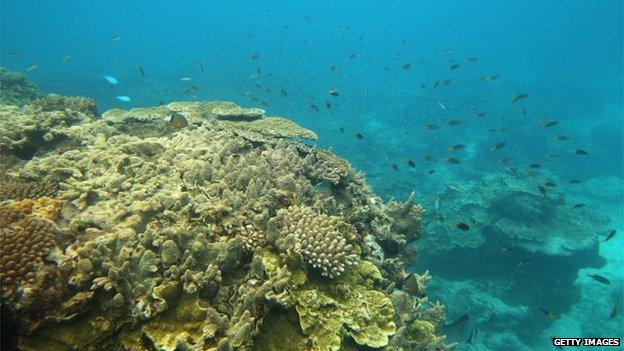
The Great Barrier Reef is the world's largest coral reef
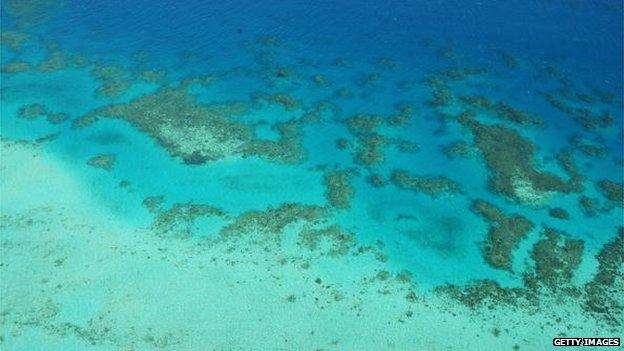
There are concerns that dumped dredged sediment will harm the Great Barrier Reef
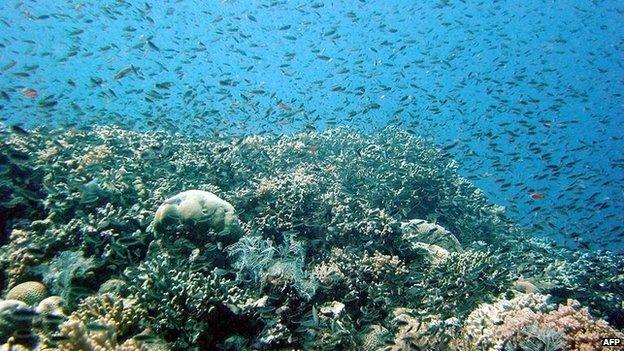
The site is home to more than 1,500 species of fish, 4,000 species of molluscs, and 400 species of sponge
- Published1 May 2014
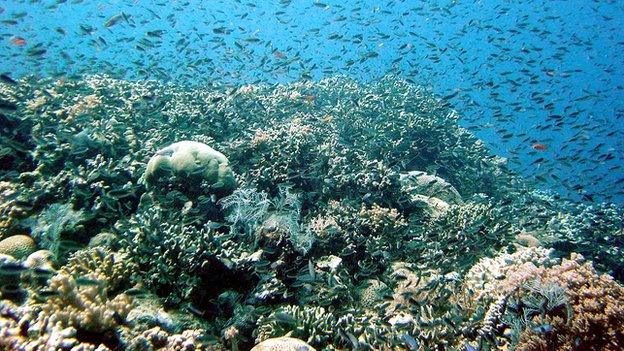
- Published31 January 2014

- Published17 January 2014
